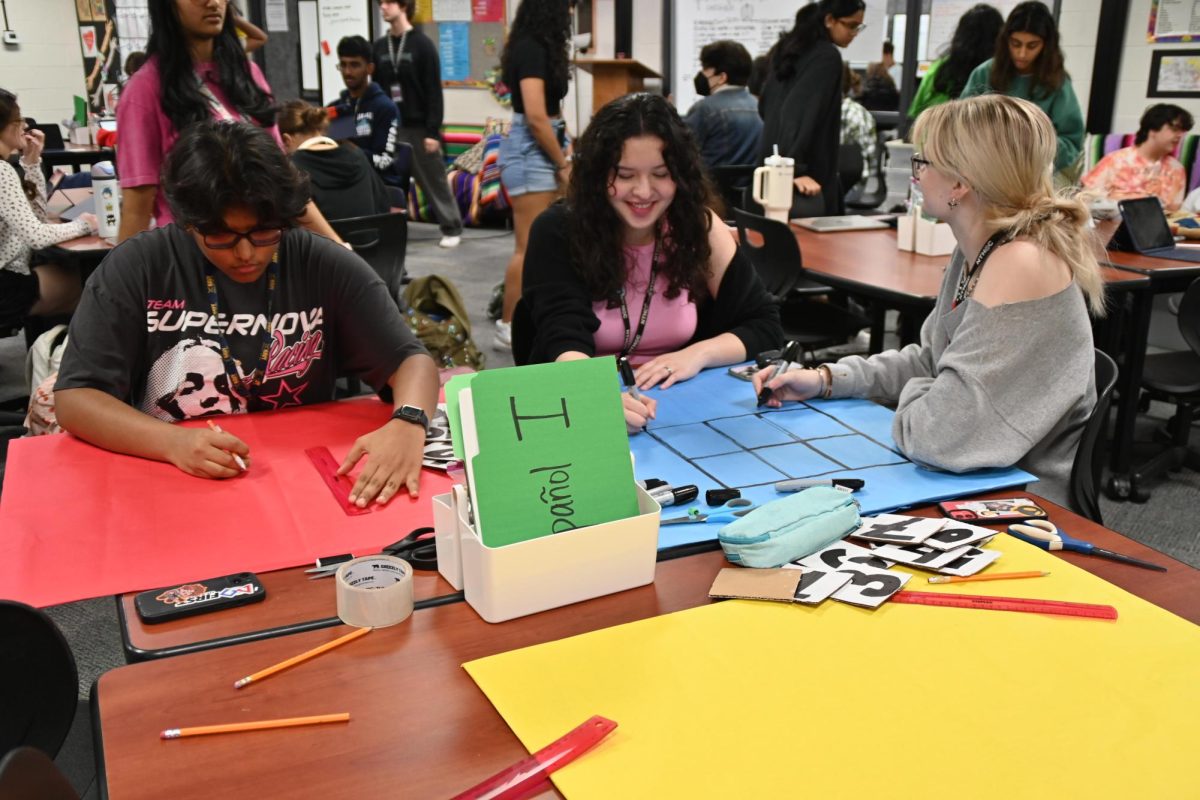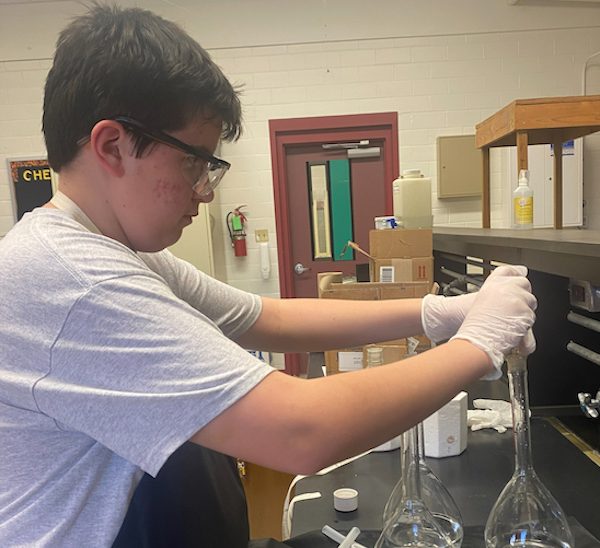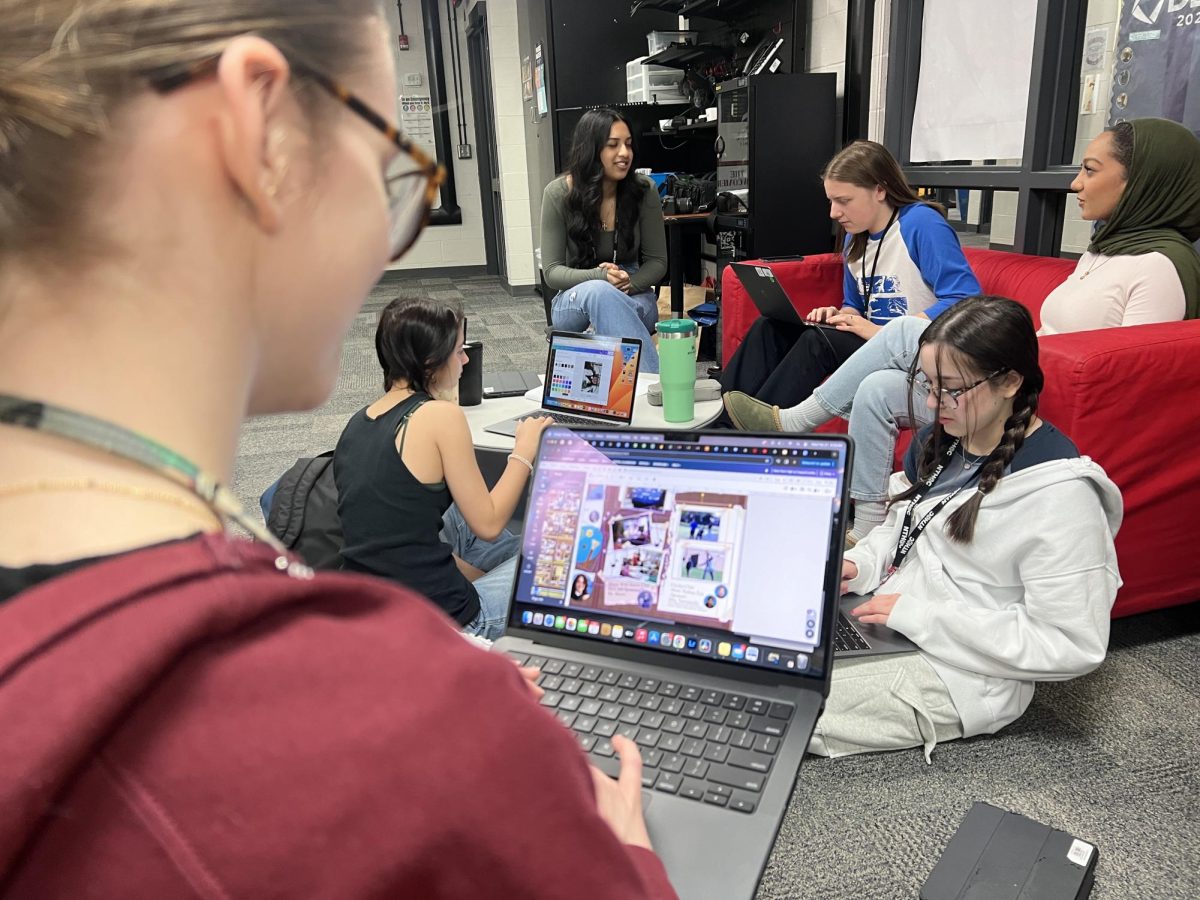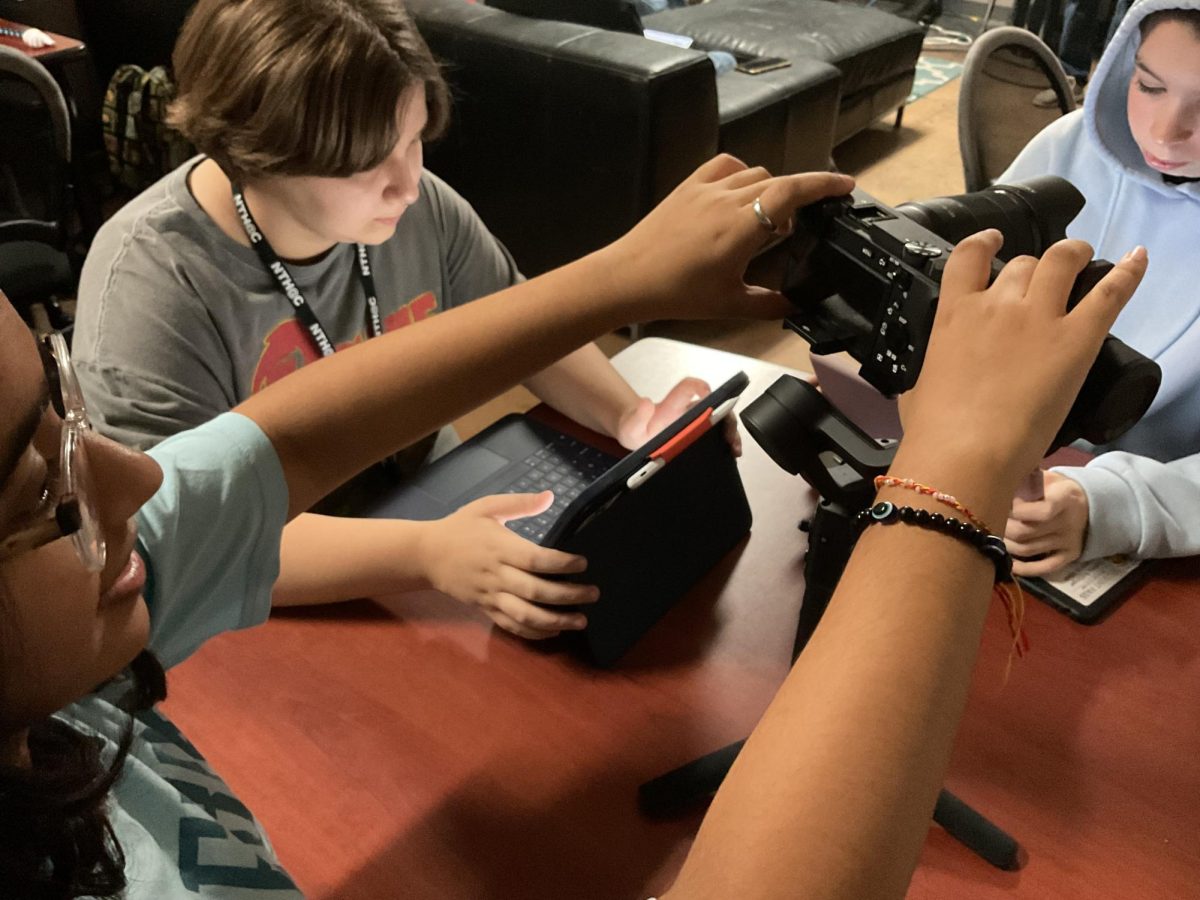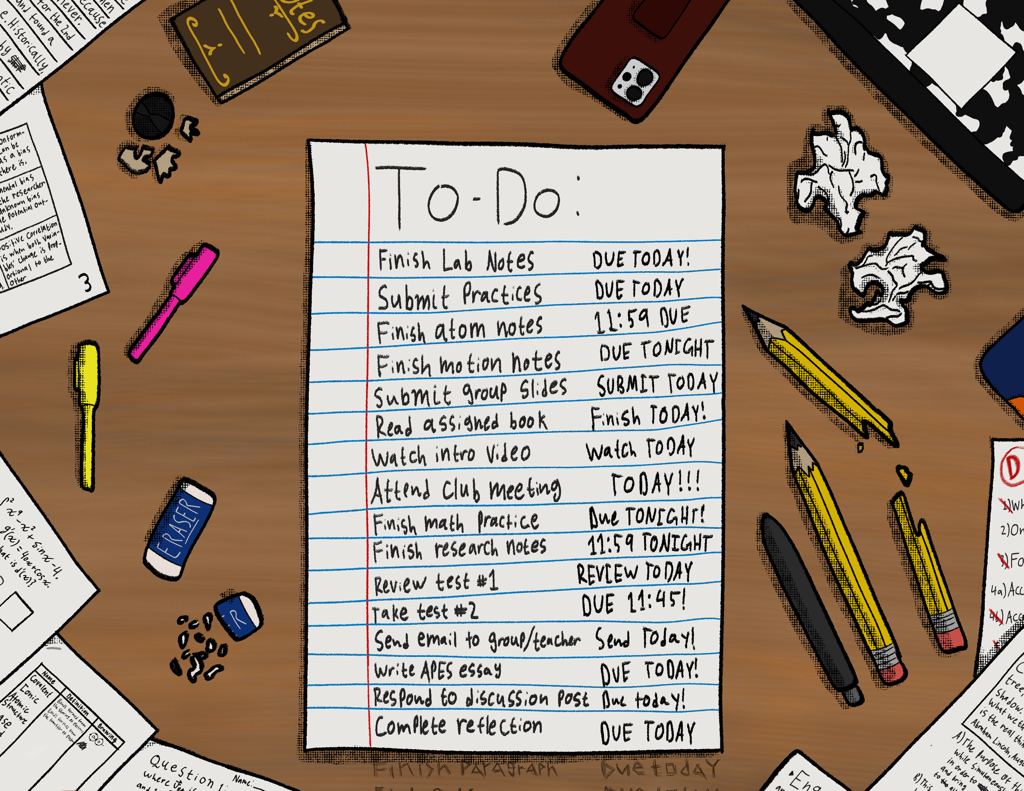In today’s academic landscape, where high-stakes tests and relentless competition reign supreme, students are silently fighting a war: the toll of school stress on their mental health. The pressure to excel in academics, along with the fear of failure, is taking a significant toll on young minds, leading to a rise in anxiety, depression, and many other mental health issues.
I recently spoke with a New Tech sophomore who mentioned, “I’m planning to take a lot of APs (Advanced Placement Courses) next year, and I’m not sure how I can handle the huge workload.” The relentless pursuit of academic achievement has created a culture of intense competition. Students are expected to have high grades, participate in club activities, and score well on standardized tests. This pressure can lead to feelings such as depression or anxiety.
Whether it’s challenging to eliminate the heavy workload, intense competition, and impossible exams that are a part of high school, it’s important to recognize that stress management is key. While students, counselors, and schools can all play a role in mitigating stress, it’s up to the individual to find coping mechanisms that work for them.
Remember: school stress doesn’t have to consume your life. It’s important to prioritize your mental health and well-being. Here at New Tech, we have many resources that can help us deal with school stress. I spoke with Aria Cohen, a member of Hope Squad, and this is what she had to say on the issue of mental health and school stress. “Mental health is important because if you are in a good mental space, you will be a happy and cheerful person. Being in a bad mental space can cause you to be grumpy or depressed. It is also important to manage school stress because you don’t want to overwork yourself or get too tired as that will take a toll on your everyday life. Some resources at New Tech that can help you include Hope Squad, the counseling department, all of the teachers, or any trusted adult. All it takes is to go up to someone and tell them what you’re going through, and that enables them to give you the help you need.
By finding ways to balance your academic responsibilities with other interests and hobbies, you can also reduce the impact of stress. Remember, you’re not alone in this journey. Many students face similar challenges, and seeking support from people around you can make a significant difference.


